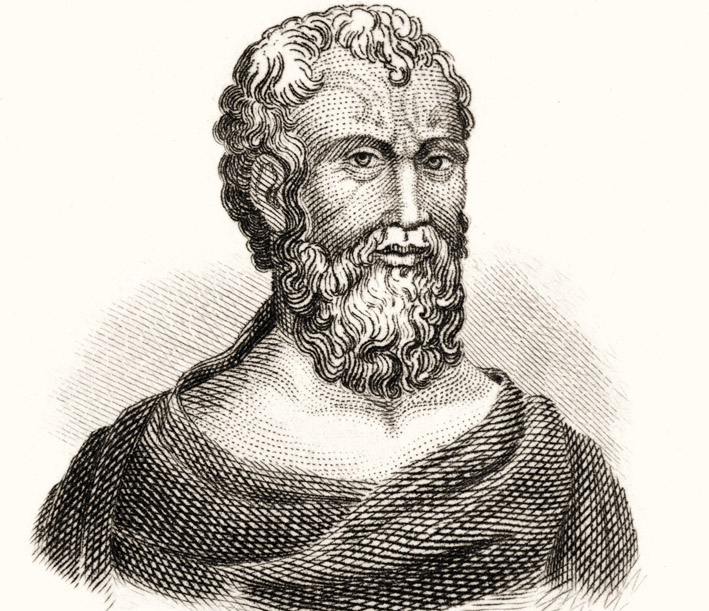Walking through the old town of Larnaca, with its narrow streets, bustling seafront and echoes of centuries of trade, it is easy to forget that this city once produced one of the most influential thinkers in human history. Zeno of Citium, born here around 334 BC, left Cyprus as a young man and went on to found the Stoic school of philosophy in Athens. Yet his roots in Larnaca – then known as Citium – remain an important reminder of the island’s place in the global story of ideas.
For Larnaca, Zeno is more than an ancient figure. He is part of the city’s cultural DNA. His story offers both pride and inspiration, proof that this corner of Cyprus was not only a trading port but also a cradle of thought whose influence still reaches far beyond the island.
A way of life, not just words
Zeno’s philosophy, known as Stoicism, was not designed to remain on library shelves. It was a practical philosophy, meant to shape the way people lived. The name itself comes from the Stoa Poikile, or ‘Painted Porch’, in Athens where he taught.
Stoicism called for discipline of the mind and emotions, teaching that while passions are natural, they should not rule us. It urged people to live in harmony with nature, recognising that happiness lies in aligning ourselves with the natural order. It placed virtue above wealth and glory, insisting that moral integrity is the only true measure of a good life. And it encouraged acceptance of what we cannot control, cultivating inner calm even in turbulent times.
These principles were taken up and developed by later thinkers, among them Epictetus, Seneca and the Roman emperor Marcus Aurelius, ensuring that Zeno’s teachings shaped not only personal lives but also political leadership for centuries.
Larnaca’s intellectual heritage
The fact that Zeno came from Citium, today’s Larnaca, is not incidental. It highlights Cyprus not just as a strategic and commercial hub, but as a place where ideas could be born and take flight. The port that once connected Cyprus to the wider Mediterranean also carried its thinkers into the intellectual heart of the ancient world.
For Larnaca today, Zeno’s legacy is a powerful reminder. It shows that the city has always been more than a seafront destination. It can present itself proudly as the birthplace of a philosophy that continues to inspire resilience and wisdom in modern times. Zeno’s presence in Larnaca’s story offers opportunities: to enrich school education, to add depth to cultural tourism and to highlight the city’s role not only in history but in the life of ideas.
Why it still matters
The Stoic message feels strikingly current. In an age of uncertainty, rapid change and constant information, Zeno’s call for self-mastery and serenity carries weight.
He taught that while external events are often beyond our control, our responses to them remain firmly in our hands. He reminded his students that true freedom lies not in possessions but in virtue. And he encouraged a life more in tune with nature, attentive to genuine needs rather than fleeting desires.
These lessons, born in Larnaca’s ancient port, resonate strongly with the challenges faced in Cyprus today, where questions of sustainability, cultural identity and social balance are pressing.
Bringing Zeno home
The legacy of Zeno of Citium is not only for historians or philosophers. It can be part of Larnaca’s living culture. His story could inspire walking trails, museum exhibits or international events that draw attention to the city’s role in shaping human thought. By weaving his life into its cultural fabric, Larnaca can present itself not only as a welcoming modern city but also as the birthplace of one of the world’s most enduring philosophies.
Zeno’s was a Cypriot voice with a universal message. From the streets of ancient Citium to the global spread of Stoicism, his ideas still offer guidance for the 21st century. By embracing and celebrating this heritage, Larnaca honours its past while sharing its story with the world.
Who was Zeno of Citium?
- Born around 334 BC in Citium, present-day Larnaca
- Founded the Stoic school in Athens, teaching at the Stoa Poikile
- Advocated self-mastery, living in harmony with nature, and the pursuit of virtue as the only true good
- Influenced later thinkers including Seneca, Epictetus and the Roman emperor Marcus Aurelius
- Died in Athens around 262 BC, leaving a legacy that continues to shape philosophy and modern thought






Click here to change your cookie preferences